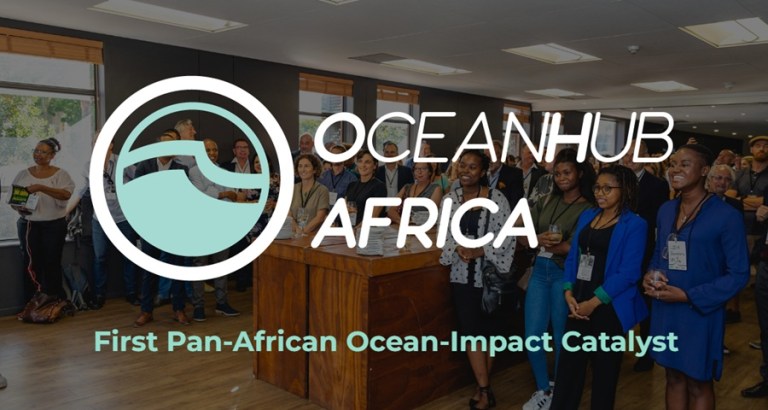Applications have opened for the seventh edition of OceanHub Africa’s 12-month accelerator, a programme designed to strengthen Africa’s fast-growing blue economy by supporting up to 24 ocean-impact startups across two intakes in March and July.
The Cape Town–based initiative, which champions profit-driven ventures tackling global warming, pollution, and the overexploitation of marine resources, is positioning this cohort as its most ambitious yet.
Startups admitted into the programme will gain access to a global network of ocean experts, investors and industry leaders, alongside practical support.
This includes a one-week in-person bootcamp, participation in the Ocean Innovation Africa Summit, and thousands of dollars in technical resources, including US$75,000 in AWS credits and more than US$40,000 worth of mechanical engineering design software.
Applications will be reviewed on a rolling basis until both intakes are filled.
Key Eligibility for Application
OceanHub Africa’s accelerator is open to for-profit, Africa-focused startups building technologies, services or solutions that directly improve ocean health.
Eligible ventures must demonstrate a measurable environmental impact, whether by reducing emissions, restoring marine ecosystems, preventing ocean pollution, or enabling more sustainable use of coastal and maritime resources.
While early traction is encouraged, startups at various stages, from prototype-ready to revenue-generating, may apply, provided their model is scalable, commercially viable and aligned with ocean-related sustainability goals.
Teams with the capacity to participate in a hybrid programme and benefit from mentorship, engineering tools and cloud resources will be particularly competitive.
Opportunities for Applicants
Selected ventures gain entry into a well-established ecosystem that blends business acceleration with deep ocean-impact expertise.
Founders will receive hands-on mentorship, strategic business development support, and access to impact investors seeking opportunities in blue-tech.
The programme’s hybrid structure allows for intensive in-person learning through a bootcamp and the Ocean Innovation Africa Summit, followed by virtual sessions for continuous guidance.
Startups involved in hardware development stand to benefit from advanced prototyping software donated by 3DExperience Lab, while digital-first ventures can leverage substantial AWS cloud credits to scale platforms, analytics tools or monitoring systems.
Beyond technical resources, the accelerator provides visibility, policy engagement opportunities, and a chance to form partnerships across Africa’s maritime sectors.
What the Selection Panels Will Likely Care About
Reviewers are expected to prioritise startups that demonstrate clear, measurable contributions to ocean preservation, from reducing marine pollution to enabling sustainable fishing, coastal resilience, or biodiversity protection.
Commercial feasibility remains equally important, as the accelerator seeks ventures capable of long-term revenue generation and large-scale impact.
Strong teams with relevant expertise, customer insight and operational readiness will hold an advantage, alongside applicants who can articulate how they will use the programme’s perks, such as engineering software and AWS credits, to accelerate growth.
Scalability across African coastal markets and the potential for global adaptation will also weigh heavily in the assessment.
How to Apply
Applications are submitted online and accepted on a rolling basis, meaning early applicants stand a higher chance of securing a spot in either the March or July 2026 intake.
Founders must complete the application form, detailing their business model, impact proposition, traction, technological approach and team capacity.
Supporting materials such as pitch decks or product demos may be requested during screening. Once shortlisted, applicants may undergo remote interviews and additional due-diligence processes before final selection.
Interested startups are encouraged to apply here promptly to optimise their chances of being considered for both intakes.
Why This Matters to Ocean-Focused Ventures
For Africa’s emerging blue-economy innovators, OceanHub Africa’s accelerator represents more than mentorship, it is a gateway to technical support, global exposure and investment pathways that are often difficult to access on the continent.
As climate change accelerates coastal vulnerability and marine degradation, ventures offering circular-economy solutions, ocean-monitoring technologies, sustainable aquaculture, and low-carbon maritime alternatives are urgently needed.
By supporting up to 24 startups, the programme not only strengthens Africa’s innovation capacity but also helps shape a new generation of profit-driven companies committed to ocean resilience.
The initiative underscores the growing recognition that the future of Africa’s environmental and economic security is deeply tied to the health of its oceans, and that startups will play a defining role in that transformation.
_____________________
Bookmark Techparley.com for the most insightful technology news from the African continent.
Follow us on X/Twitter @Techparleynews, on Facebook at Techparley Africa, on LinkedIn at Techparley Africa, or on Instagram at Techparleynews





